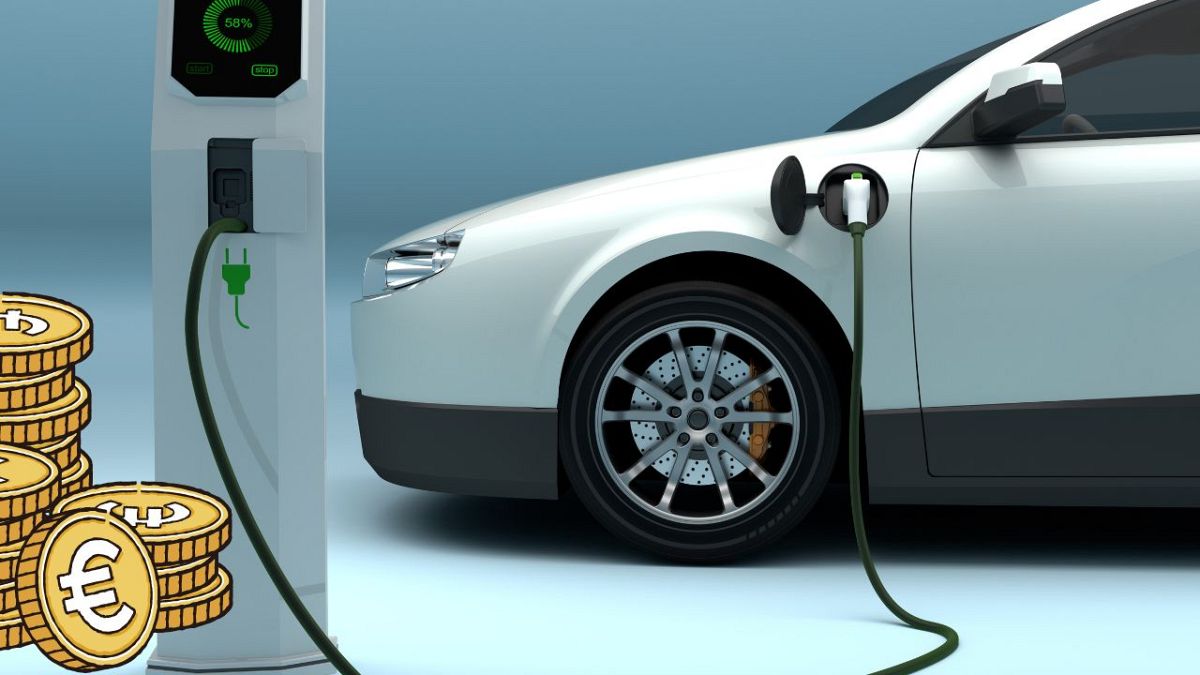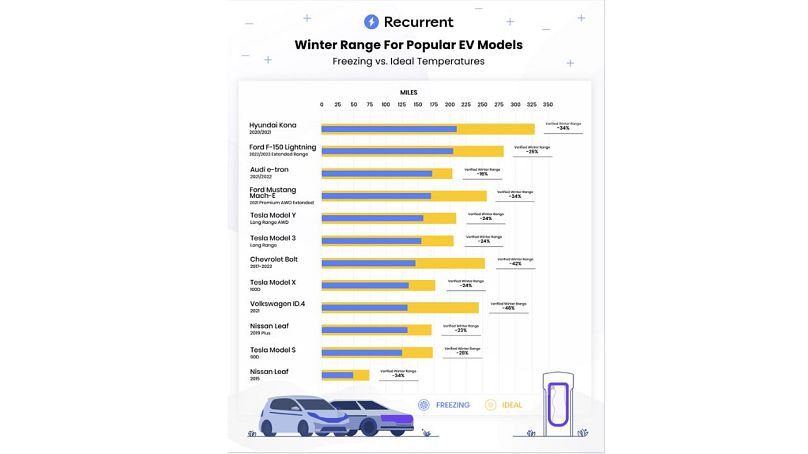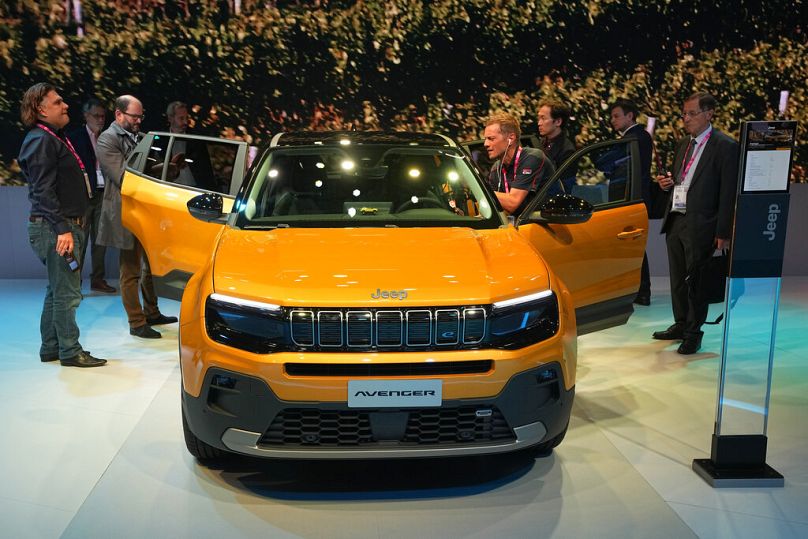Euronews Business looks at the expenses associated with electric vehicles, comparing these costs across EU regions.
If you're considering buying an electric car (EV) this Christmas, you're part of a growing trend.
EV sales are on the rise, projected to claim 13% of the market share by the end of 2024 and a significant 24% within three years, according to analysis by consumer intelligence company JD Power.
Their surge in popularity is clear: electric car sales accounted for over 8% of all new vehicle purchases until October, marking a substantial leap from the 2.6% reported in 2020.
Deloitte's study highlights that lower running costs stand as the primary reason for people choosing EVs, followed by a better driving experience, reduced maintenance hassle, and climate change concerns. However, buying an EV can be costly.
Joeri Van Mierlo, director of MOBI Electromobility Research Centre, told Euronews that the investment pays off in the long run.
"The purchase price of electric vehicles are often higher than conventional vehicles, however the maintenance and fuelling cost as well as the vehicle road taxation are much lower for EVs," he said.
"From a total cost of ownership perspective electric vehicles are becoming more and more appealing."
With that in mind, Euronews Business breaks down five factors you should weigh up before deciding on your Christmas EV purchase.
The fluctuating cost of charging
Both oil and electricity prices have experienced significant fluctuations in recent years, largely attributed to Russia's invasion of Ukraine, which disrupted energy markets.
Following a surge in 2021 and 2022, electricity prices in the EU decreased throughout 2023. However, prices remain volatile and vary considerably from country to country.
During this period, Italy recorded the highest figures in the region, exceeding €540 per megawatt-hour in August 2022. In contrast, Sweden's cost amounted to merely €0.2668 per kilowatt-hour.
Consequently, the cost of EV charging varies significantly from vehicle to vehicle and from country to country. For instance, in Hungary, costs for the same model of car can be €0.0917/kWh for electricity, while in Germany, it can amount to nearly six times the price (€0.6303/kWh), according to the European Alternative Fuels Observatory.
On the bright side, there are incentives and tax benefits for EV owners. In countries like Belgium, EVs are 100% deductible from company tax from 2020 until 2026, including the power used to charge BEVs, which again varies from region to region.
Battery life and replacement costs
Maintaining an EV might not be as cost-effective as using a traditional petrol or diesel vehicle. Replacing crucial components, particularly batteries, can be notably expensive.
Electric vehicle batteries tend to be the priciest component, ranging from €3,500 to €18,000, depending on your vehicle's brand and model.
The steep cost of EV batteries is primarily due to the materials used in their production, such as manganese, cobalt, and lithium, which come at a significant expense. However, as manufacturing processes improve, battery costs gradually decrease, prompting further investments and innovations.
The lifespan of EV batteries typically ranges from approximately 152,000 to 312,000 kilometres, with an annual capacity loss of about 2%. This equates to roughly 48 kilometres of range lost over a decade.
However, as EV battery technology progresses, batteries become more affordable, smaller, and lighter.
Higher insurance expenses
Over the past year, car insurance premiums, much like various other goods and services, have significantly increased.
In October, Confused.com, an insurance comparison platform, reported a remarkable 58% increase in the cost of acquiring full motor vehicle insurance within the previous 12 months.
According to data from Compare the Market, the average insurance premium for an EV in the same month stood at €1,000 per year, slightly surpassing the €990 for a diesel car.
Julie Daniels, Compare the Market's motor insurance expert, told The Telegraph that the average insurance premium for petrol cars surpassed that of insuring an EV.
However, she pointed out that based on their data, insuring EVs has generally been more expensive compared to petrol or diesel cars in recent months.
Price of home charging equipment
The price of home charging equipment represents a significant aspect of purchasing an electric car due to the convenience it offers.
In Europe, setting up an EV charging station can cost between €600 and €1,500, with installation costs ranging from €600 to €2,500.
Certain countries offer incentives such as tax credits and grants to support the installation of EV charging stations, aiming to facilitate the expansion of this critical infrastructure.
In Germany, Europe's largest EV market, installation expenses for a charging station range between €1,500 and €3,000. Residential setups incur lower costs, while commercial installations can reach up to €5,000.
France, with a focus on sustainable transportation, aims to achieve one million EV charging stations by 2030. The installation cost in France ranges from €2,000 to €5,000.
The UK, committed to enhancing EV infrastructure, incurs installation expenses ranging from €1,100 to €5,000. These efforts align with the country's promotion of electric vehicles and environmentally friendly transportation initiatives.
In summary, not all residents can afford a charger at home, and many rely on public ones, which are still not widely available in some regions.
The value upon resale
Selling your EV, especially if you're considering an upgrade, can present challenges in navigating the short-term market. However, with the expanding adoption of electric vehicles, the market for second-hand EVs is expected to grow in parallel.
Insights from Auto Trader indicate that in certain cases, comparable second-hand petrol cars and their electric counterparts have achieved price parity. However, there might be limitations in terms of availability and diversity within the second-hand EV market.
Auto Trader highlights that the most sought-after price range among buyers falls between €22,000 and €33,000.
The annual depreciation of an EV can vary based on several factors, including the specific make and model, market demand, technological advancements, battery longevity, and government incentives.
On average, electric cars depreciate by approximately 15-20% annually. Data from We Buy Any Car reveals a depreciation rate of 15-35% in the first year, decreasing to 40-49% after three years. Despite this, their depreciation rates fare better compared to traditional petrol and diesel cars.
AA vehicle insurance reports that new conventional cars can depreciate by 40% in the first year and 60% after three years, with an average annual decline of around 10%.





